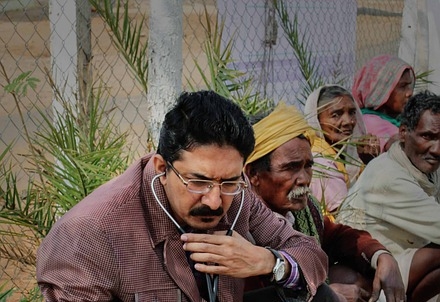Since 1999, a fiscal reforms and restructuring process has been ongoing in Karnataka at the state government level. As part of this, the Government of Karnataka has recently passed a legislation which aims to bring a rigorous process of planning, transparency and citizen participation together at the local level.
The Karnataka Local Fund Authorities Fiscal Responsibility Act, 2003, mandates a Medium Term Fiscal Plan (MFTP) for the Local Fund Authorities and lays down the principles for financial management. An LFA is any local body which administers the local fund. This law is applicable to both urban and rural areas, allows a 'to be prescribed' citizens forum to participate in the preparation of the annual budget and the review and evaluation of the performance of urban and rural local governments.
The Bangalore Mahanagara Palike (BMP, Bangalore corporation/municipality), the Bangalore Development Authority (BDA), as well as the 4000 odd gram panchayats in Karnataka and 210 municipalities will come under the purview of this act. In the first phase (2004-5) it is proposed that the MFTP will be prepared by 30 urban local bodies (municipal councils) and 28 district rural level bodies (Zilla Panchayats).
A key cornerstone of the legislation is that it seeks to foster a process of public engagement with the fiscal policies, resulting in feedback on the performance through a social audit. Among its several key aspects, some are:
- 'Accounting standards', 'fiscal evaluation indicators' and performance standards must be developed by each authority.
- The development of a medium term rolling 4 year fiscal plan (MTFP) is mandatory for all LFAs.
- The MTFPss should pursue expenditure policies that would provide impetus for economic growth, poverty reduction and improvement in human welfare;
- Forums be held for citizens to participate in the preparation of local annual budgets and the review and evaluation of the performance of the local authorities. The exact form that these forums may take is yet to be prescribed. Citizens may scrutinize the performance of LFA by examining sufficient data which the LFA must disclose.
- LFAs should minimise secrecy in the preparation of its annual budget. It must hold at least 2 meetings with the citizens forums.
The rules under the new legislation have not yet been laid out. Specifically, the rules on what constitutes citizens forums are critical and yet to be prescribed.
This author recommends that two levels of citizens forums be allowed for in the structure. One type at the ward level, and a second type at the city level. At ward level forums, spending of monies per ward can be discussed by citizens and priorities be identified by residents associations and in turn passed on to the ward committees for incorporation with the LFAs budgeting and planning process. (The constitution of ward committees in July 2003 presents this opportunity.) The average budgetary spending on maintenance works for an urban ward in Karnataka may be anything from Rs.50,000Rs. 2 crores, for a population verifying from 5,000 to 50,000 ward. In Bangalore the total amount to be spent in each ward is close to Rs. 2.00 crore in the financial year 2003-04. Together, citizens may determine spending on a pool totaling Rs. 200 crore for 100 wards.
At the pan-city scale the confederation of Bangalore residents associations (COBRA), industry, commerce, trade unions, municipality employees and registered voters may participate to advance the process that started at the ward level.























